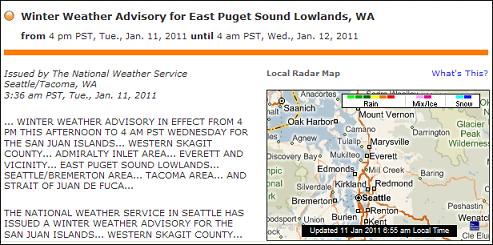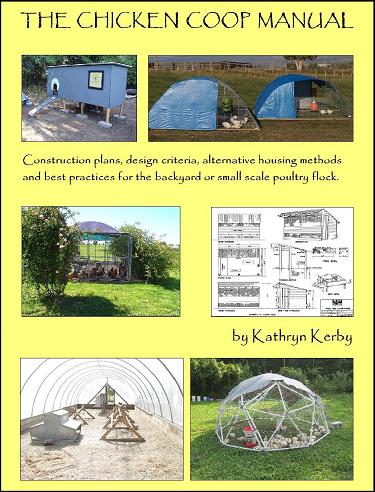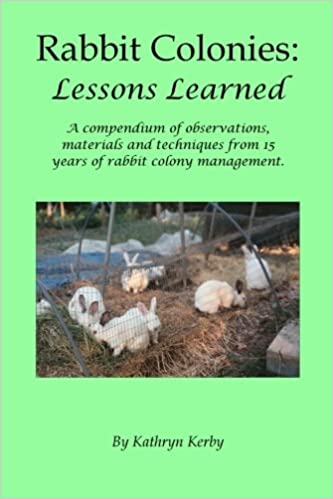Winter Preparedness
January 11, 2011

Today I worked on various tasks associated with preparing for potentially harsh weather. It’s a familiar routine, after being on this particular farm for 10 years and going through quite a few such events. But each time through, we refine our methods. Preparedness is like that - the first time around, you miss quite a bit. But with practice, you get better.
Preparedness is an outlook on life that I chalk up to being in the same realm as “if you fail to plan, you plan to fail”. It’s simply looking ahead to what is reasonably possible, which usually involves several outcomes and a certain amount of uncertainty about which one of them will come to be. Then allowing that any of them may come to be, you take steps early on so that no matter what comes to be, you’re ready.
It can seem a daunting task but it doesn’t need to be. On the farm, storm preparedness means that we have plenty of feed, water in tanks, and outbuilding structures snugged down in case of high winds and/or heavy snow loads. Any sensitive plants in the garden are covered or brought in, such as the mother plants for my market herbs. Restock the pantry with groceries and bottled water. Fuel the trucks, and bring in plenty of wood for the woodstove. Drain the several hundred feet of outdoor hose lines and put them away. Refresh the animal bedding and bring out snow shovels, roof rakes and whatever else we might need, so that they’re easy to reach. It also means doing any outstanding household chores so they’re not demanding attention. Laundry, cooking, and even cleaning house are all nice to get out of the way. Happily, most of those tasks are already daily or weekly events so many of them are already done. Storm preparation then becomes an exercise in settling any last outstanding details: running errands in town, paying a few bills, and emptying the ashes for the woodstove. All that’s left is to watch the weather forecasts and wait for the snow.
I don’t know why, but I’ve been interested in preparedness for a long time. Maybe it was the Girl Scout camping trip where I didn’t pack until the very last moment, forgot half my creature comforts, and spent most of that weekend convinced I was going to freeze. Since then I’ve tried to improve on that first experience, whether I was out camping, or at school, or now on the farm. It’s not something you do once and you’re done. It’s a constant contest with yourself to see how much more streamlined you can make things, and how quickly you can get your operation squared away.
Many of our acquaintances don’t share our interest in preparedness, unless/until they have a touch of being caught behind when something unexpected comes up. Or, as in the case of Hurricane Katrina, some large event catches enough people unprepared that it becomes a national news event. We got more questions about preparedness in the weeks following Hurricane Katrina than in the years prior. Finally, preparedness was something more than paranoia. Yet as the headlines faded, so too did much of the interest.
It’s still a way of life for us and we believe it’s effort well spent. When our next storm rolls in, we’ll watch the weather and hope to see a major event fizzle into a minor one. But if it is major, we won’t have a lot that we need to do. Just square up the outdoor operations, then work on indoor projects and watch that snow fall without too much fretting involved. Which is the best way I know of to spend a cold winter’s day.
Our Successful Farming and Ranching Books

We released our very first self-published book. The Chicken Coop Manual in 2014. It is a full color guide to conventional and alternative poultry housing options, including 8 conventional stud construction plans, 12 alternative housing methods, and almost 20 different design features. This book is available on Amazon.com and as a PDF download. Please visit The Chicken Coop Manual page for more information.

Rabbit Colonies: Lessons Learned
We started with rabbits in 2002, and we've been experimenting with colony management ever since. Fast forward to 2017, when I decided to write another book, this time about colony management. The book is chock-full of practical information, and is available from both Amazon and as a PDF download. Please visit the Rabbit Colonies page for more information.
The Pastured Pig Handbook
We are currently working on our next self-published book: The Pastured Pig Handbook. This particular book addresses a profitable, popular and successful hog management approach which sadly is not yet well documented. Our handbook, will cover all the various issues involved with pastured hog management, including case studies of numerous current pastured pig operations. If you have any questions about this book, please Contact Us.

Weblog Archives
We published a farm blog between January 2011 and April 2012. We reluctantly ceased writing them due to time constraints, and we hope to begin writing them again someday. In the meantime, we offer a Weblog Archive so that readers can access past blog articles at any time.
If and when we return to writing blogs, we'll post that news here. Until then, happy reading!




